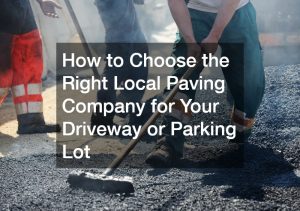When you say “house,” you immediately think of family — a home for parents and their children. But buying a house can also be a decision for a different kind of family: your organization. A house can be converted into an office or headquarters, provided, of course, that it is permitted in the area.
There are certain zonal requirements for setting up certain establishments. Before you refinance your mortgage or get the necessary construction equipment, make sure that you have all the permits that you’re going to need, especially if it’s in a residential area. Should everything fall into place, a house can be a home for others, too.
Pet Shelter: From house to doghouse
For many families, pets are part of the brood. But for pets that have no homes, a pet shelter can provide them with the love and care that is elusive in the streets.
If you’re an animal lover, you can band together with like-minded individuals and convert a human home into an animal shelter. You can also choose to create a daycare center for pets to give their “hoomans” peace of mind when leaving them behind for the day.
Daycare Center: From playroom to playhouse
The truth is, the best daycare centers are like extensions of the home — spaces where children are free and safe to grow in mind and body. It shouldn’t be too far off, then, to think of converting a home into a daycare center.
Situating daycare centers in residential areas is also a good idea because, instead of bringing their children with them to a big city daycare center, parents won’t need to bring their children too far out every morning.
Community Library: Sharing a community’s resources
Another home conversion that could benefit the children of your neighborhood would be a community library. This isn’t just limited to books. You can lend all kinds of things, from toys to clothes and even equipment. Borrowing and lending won’t only help those who are strapped for resources. It can also benefit entire communities in fostering a spirit of kindness and goodwill.
Community Workshop: Bringing people together
Not everyone has a garage or backyard space to pursue their passions. Creating a community center where people can pursue their interests while interacting with fellow hobbyists is a good use of residential real estate.
You can create a community center where people can paint, do woodwork, gardening, and maybe even group exercise — things that require extra space and equipment. It’s another great way of creating shared resources for a community.

Recycling Center: Sorting through things together
You can turn a former residential space into a home for trash to help your community manage its waste better. The space can serve as a facility where people can bring their trash for composting or recycling. This makes it easier for them to dispose of their waste properly even if they have no space to do so in their own homes. Recycling plants can then make regular pickups at this point, while home gardeners can drop by this space to pick up fertilizer. This turns a former home into a new home for community action.
Studio: A home for the arts
This takes the concept of a garage band to a whole new level. You can turn a home into a studio space to foster young local artists. You can convert each room into a recording studio for indie bands or turn them into galleries where painters, sculptors, filmmakers, performance artists, and other creatives can showcase their work. Doing so will not only help the community but can also inject vibrancy and culture into the neighborhood.
NGO HQ: A new residence for your office
Turning a home into an office is a good move, especially if the residential setup suits your organization. If your work is primarily done in suburban communities, putting your headquarters into a converted home would be a great idea. This would also suit organizations that require sleeping quarters or a full-service kitchen.
These are just some ideas on what kind of organizations and establishments can be built inside former residential spaces. The possibilities abound, but before you start making changes, it’s important to reiterate that cities have zonal requirements when it comes to setting up commercial spaces. Therefore, make sure first that you have all the permits that you’re going to need.
Also, many of the activities listed in this article are currently regulated or prohibited entirely because of the pandemic. Things are slowly opening up. So, while waiting, take this time to plan your organization and community’s future home.









